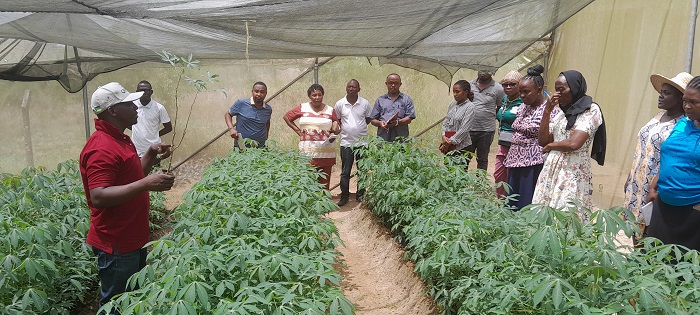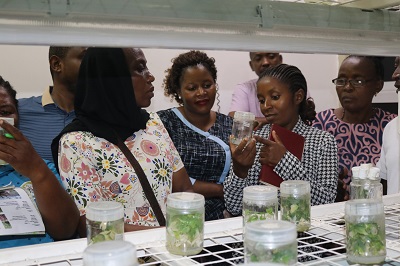Bridging Research and Extension: Training Agricultural Extension Workers on Cassava and Sweet Potato Innovations at TARI Kibaha
- 2nd December, 2024 11:35
- By MAUYA
- News

A
single-day-training conducted at TARI Kibaha on the 30th October
2024 engaged 24 agricultural extension workers (14 females, 10 males) from
Kibaha Town Council, in Coast Region. Eight research staff from Roots and
Tubers, and Technology Transfer and Partnerships departments facilitated this
training.
The
training aimed to provide an
overview of research on roots and tuber crops, particularly cassava and sweet
potatoes, conducted at TARI Kibaha, facilitate
knowledge and skills exchange on good management practices of cassava and
sweetpotato crops between research and extension, strengthen
relationships and communication between researchers and extension workers to
enhance collaboration and enhance wider uptake of innovations.
A day covered both theoretical and practical/field sessions. In theoretical sessions facilitators presented research advancements on cassava and sweet potatoes, focusing on improved varieties, pest and disease management, and value addition technologies while field exposure introduced participants to ongoing research and physical observations of facilities and procedure, including:
- Tissue culture production of disease-free cassava plantlets.
- Hardening of tissue-cultured cassava plantlets.
- Rapid multiplication of high-yielding, disease-free cassava using two-node cuttings and pencil stem cuttings in screen house facilities.
- Production of disease-free- sweetpotato planting materials in screen house.

Moreover, participants engaged in interactive discussions through which they shared experiences, discussed challenges, and explored solutions in roots and tuber crop production. Consequently, they gained understanding of the practical applications of research on cassava and sweet potatoes, including high-ratio propagation techniques, strengthened collaboration between researchers and extension staff for effective technology dissemination, and enhanced capacity of extension workers to support farmers with up-to-date knowledge and innovative practices.

